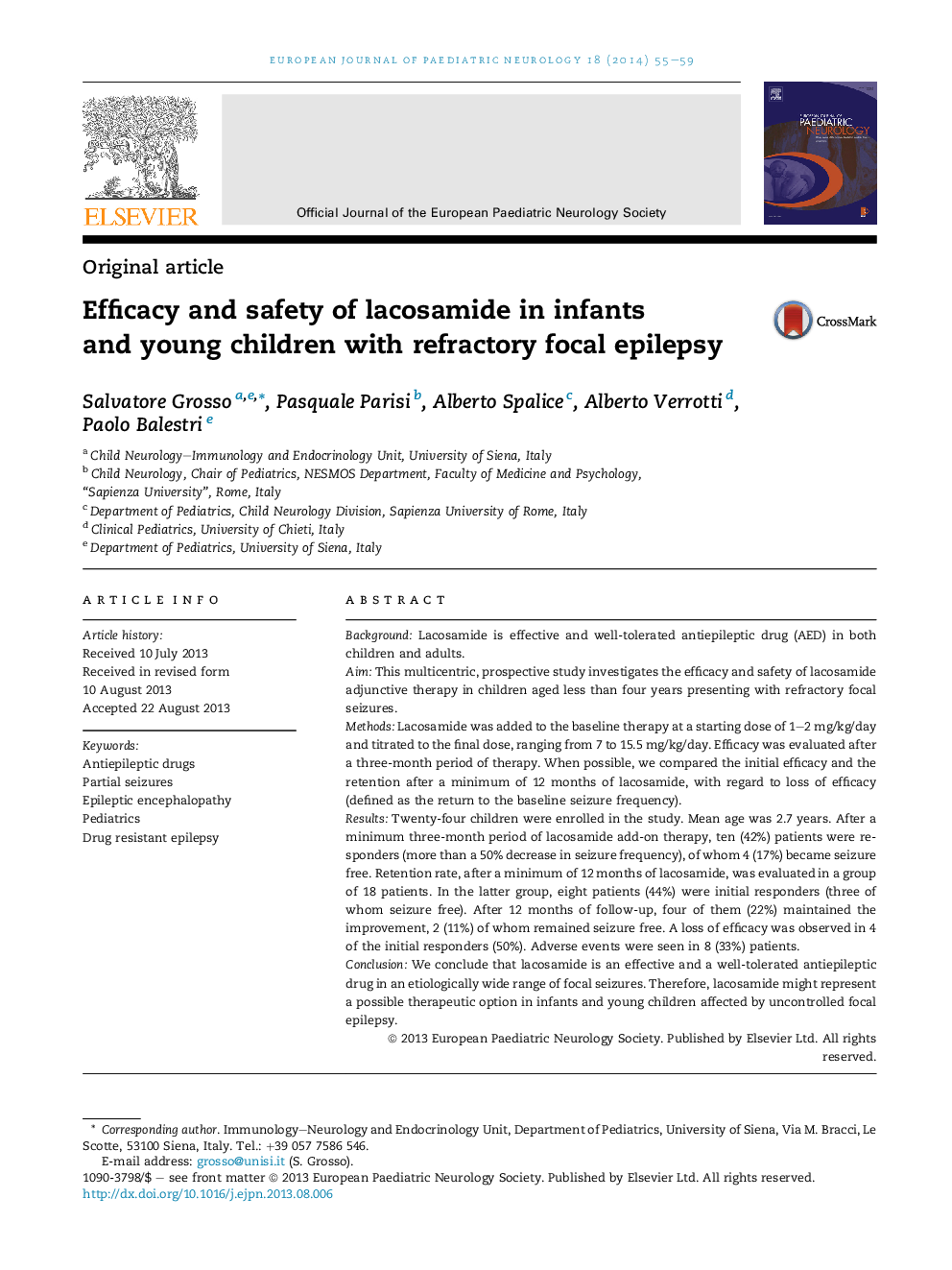| Article ID | Journal | Published Year | Pages | File Type |
|---|---|---|---|---|
| 3054157 | European Journal of Paediatric Neurology | 2014 | 5 Pages |
BackgroundLacosamide is effective and well-tolerated antiepileptic drug (AED) in both children and adults.AimThis multicentric, prospective study investigates the efficacy and safety of lacosamide adjunctive therapy in children aged less than four years presenting with refractory focal seizures.MethodsLacosamide was added to the baseline therapy at a starting dose of 1–2 mg/kg/day and titrated to the final dose, ranging from 7 to 15.5 mg/kg/day. Efficacy was evaluated after a three-month period of therapy. When possible, we compared the initial efficacy and the retention after a minimum of 12 months of lacosamide, with regard to loss of efficacy (defined as the return to the baseline seizure frequency).ResultsTwenty-four children were enrolled in the study. Mean age was 2.7 years. After a minimum three-month period of lacosamide add-on therapy, ten (42%) patients were responders (more than a 50% decrease in seizure frequency), of whom 4 (17%) became seizure free. Retention rate, after a minimum of 12 months of lacosamide, was evaluated in a group of 18 patients. In the latter group, eight patients (44%) were initial responders (three of whom seizure free). After 12 months of follow-up, four of them (22%) maintained the improvement, 2 (11%) of whom remained seizure free. A loss of efficacy was observed in 4 of the initial responders (50%). Adverse events were seen in 8 (33%) patients.ConclusionWe conclude that lacosamide is an effective and a well-tolerated antiepileptic drug in an etiologically wide range of focal seizures. Therefore, lacosamide might represent a possible therapeutic option in infants and young children affected by uncontrolled focal epilepsy.
